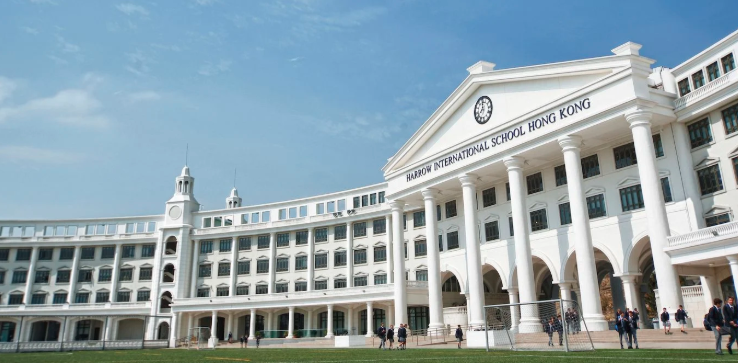Understanding the hong kong international school ranking: A Comprehensive Guide for Parents and Educators

As Hong Kong continues to position itself as a global financial and cultural hub, its education system has evolved to match international standards. A notable part of this evolution is the rise and consistent performance of international schools across the region. For parents seeking high-quality education for their children—especially those from expatriate backgrounds—understanding the hong kong international school ranking is crucial for making an informed decision.
This guide will delve into what influences these rankings, the top schools often featured, and how parents can evaluate institutions beyond just numbers.
Why International Schools in Hong Kong Are in High Demand
Hong Kong’s dynamic blend of East and West has made it a magnet for multinational professionals. This multicultural environment creates a demand for schools that cater to diverse linguistic, cultural, and academic needs. International schools in Hong Kong offer:
- Globally recognized curricula (IB, IGCSE, AP, etc.)
- English-medium instruction
- Multicultural classrooms
- Modern teaching methodologies
- Strong university preparation and college counseling
For this reason, international schools in the city are not only popular among expats but also increasingly sought after by local families aiming for global higher education opportunities for their children.
What Determines the hong kong international school ranking?
The hong kong international school ranking is influenced by several key factors. While there’s no singular global ranking system for schools like there is for universities, various organizations and education portals assess schools based on a combination of the following criteria:
1. Academic Performance
Standardized test results (IB Diploma results, AP scores, IGCSE grades) are one of the most concrete measures of a school’s academic strength. For instance, schools that consistently produce high IB average scores often rank higher.
2. University Placement
A school’s track record in placing students into prestigious universities such as Oxford, Harvard, or the University of Tokyo significantly impacts its reputation and ranking.
3. Curriculum Quality and Breadth
Schools offering rigorous and well-rounded programs—such as the full IB continuum (PYP, MYP, DP)—usually score better. Offering a wide selection of subjects and extracurricular activities is also favorable.
4. Faculty Qualifications
Experienced and internationally trained educators who bring innovation into the classroom are valued components in rankings.
5. Student Diversity
Institutions that host a mix of nationalities promote global citizenship and cultural awareness, which are essential in international education.
6. Facilities and Campus Resources
State-of-the-art labs, sports complexes, arts centers, and digital learning environments enhance learning and reflect positively in evaluations.
See also: The Science Behind How AI Can Create Images From Text
Top-Ranked International Schools in Hong Kong
While rankings may vary slightly from source to source, the following schools are frequently featured at the top in most hong kong international school ranking reports:
1. Hong Kong International School (HKIS)
- Curriculum: American curriculum and AP program
- Highlights: Known for its rigorous academics, faith-based values, and outstanding college placements in the U.S.
2. German Swiss International School (GSIS)
- Curriculum: German and British sections (IGCSE & IB)
- Highlights: Bilingual instruction, strong STEM programs, and impressive IB results.
3. Chinese International School (CIS)
- Curriculum: IB Diploma Programme
4. English Schools Foundation (ESF)
- Curriculum: IB PYP, MYP, and DP
- Highlights: ESF oversees several schools with a long-standing reputation for high academic standards and inclusive education.
5. Canadian International School of Hong Kong (CDNIS)
- Curriculum: Ontario (Canada) + IB Diploma
- Highlights: Strong emphasis on student leadership, technology integration, and environmental sustainability.
6. French International School (FIS)
- Curriculum: French Baccalaureate and IB
- Highlights: Offers dual pathways, cultural richness, and excellent exam outcomes.
Why Rankings Should Be Just One Factor in Your Decision
While it’s tempting to rely solely on the hong kong international school ranking when choosing a school, rankings can sometimes overlook personal factors that may be more important for your child’s success and well-being. Here’s why:
1. Every Child Is Different
The most “prestigious” school may not necessarily be the best fit for your child’s learning style, interests, or emotional needs.
2. School Culture and Values
What values does the school emphasize? Some prioritize academic rigor, others creativity or service learning.
Admission Trends and Competition
Applications can be submitted months—or even years—in advance. Most schools require:
- Academic transcripts
- Standardized test results
- Interviews or assessments
- Letters of recommendation
Because of limited seats and high demand, even qualified candidates may find it difficult to secure admission without early preparation. Schools also tend to favor families who are committed for the long term and value community involvement.
The Role of Rankings in Strategic Educational Planning
For educators and school administrators, understanding the dynamics of the hong kong international school ranking is equally important. Strong rankings:
- Attract high-quality faculty
- Strengthen alumni networks
- Support partnerships with universities and corporations
- Drive continuous improvement in curriculum and infrastructure
Thus, many schools now invest significantly in professional development, educational technology, and student well-being to remain competitive.
Final Thoughts
The hong kong international school ranking is a useful starting point for evaluating schools, but it should never be the sole decision-making factor. Behind every ranking is a complex web of academic standards, cultural philosophies, teaching methodologies, and student experiences.
Whether you’re a parent searching for the right educational path or an educator striving for excellence, a balanced perspective is key. Visit campuses, talk to current students and teachers, review curriculum details, and most importantly—consider what will truly empower a child to thrive in both local and global contexts.
Remember, the best school is not just the one with the highest ranking—it’s the one where your child will be happiest, most supported, and most inspired to learn.
